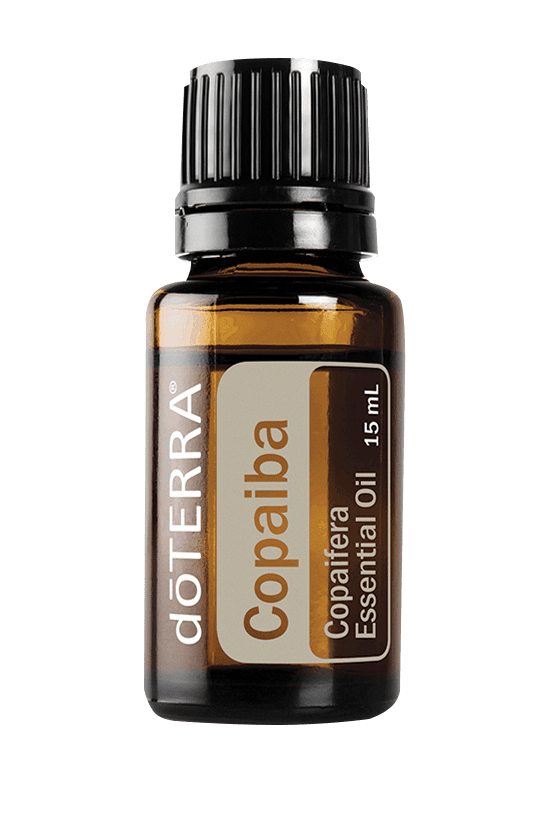Origin: a Latin derivative
meaning "Gift of the Earth."
- Shop
-
Our Story
- View Our Story Home
- Who We Are. . . .
- What We Do. . . .
- Why We Do It. . . .
-
dōTERRA[doh-teh-ruh]
Episode 122: Supporting Your Immune System and the History of Lemon Eucalyptus
doTERRA: Supporting your immune system is key to maintaining daily health, but with so many options out there, how do you know what will work best for you? Today, we'll talk about some of the best options for supporting a healthy immune system.
Welcome back to Essential Oil Solutions with doTERRA, the podcast where you'll hear exciting, useful, and simple everyday uses for essential oils from experts in the field. If you like what you hear today, rate, review, and subscribe wherever you listen. We always appreciate hearing from you.
Today, we're excited to talk to Samantha Lewis, a member of the doTERRA product marketing team, about supporting your immune system every day. Samantha, thank you so much for being here with us today.
Samantha Lewis: Thanks so much for having me!
doTERRA: Now, my first question for you is, why is it so important to support our immune system?
Samantha: Well, a robust and properly functioning immune system helps you go about your daily life. The effects could be pretty serious if your immune system isn't supported properly. Although our immune system knows its functions and generally can perform them fairly well, some of us have genetic or environmental impacts that can complicate the overall function.
It's vital that our immune systems are in good working order if we want to stay as protected as possible. There are several ways we can do this, spanning from lifestyle and diet changes, reducing stress, and even incorporating immune-boosting foods or supplements daily.
doTERRA: And why are essential oils helpful in supporting a healthy immune system?
Samantha: That's a great question. The biggest benefit, in my opinion, is that they can help our immune system function. Taking essential oils internally is a really great way to use those immune-boosting properties. Additionally, many essential oils are great at cleansing surfaces and the air, providing added protection to your home. Most citrus essential oils, like Green Mandarin, are excellent surface cleansers thanks to the limonene they contain.
doTERRA: Now, my final question is, which essential oils do you recommend to help support my immune system?
Samantha: So many! Honestly, I feel like the list is endless, and it really just depends on your own preferences. First off, any citrus oil, for the reason I mentioned with the limonene. But I also want to give you a quick list of some oils that you might not have thought of but likely have in your collection.
I'd recommend playing around with Marjoram, Black Pepper, and even Petitgrain to help your immune system when needed most.
doTERRA: Samantha, thank you so much for being here with us today.
Samantha: It's my pleasure!
doTERRA: Contrary to popular belief, the lemon eucalyptus tree, specifically eucalyptus citriodora, doesn't actually bear lemon fruit. Rather, the leaves of the tree release a powerful lemony aroma when crushed. Knowing this, it's clear why the Latin name for the species came to be “song of citruses.”
Lemon eucalyptus, which is sometimes called lemon-scented gum tree or spotted gum tree, is native to northern Australia, where it thrives in the tropical monsoonal climate, withstanding both a dry and a wet season, humidity, acidic soil, and more.
Plant Description
The tree itself stands tall, sometimes 100 feet or higher. It produces skinny, lance-shaped leaves that are deep green and glossy on younger trees and rough and scraggly on older ones. The tree also sprouts little white flowers, which are excellent sources of nectar for honeybees and butterflies. The lemon eucalyptus tree is known to shed its bark, making it appear spotted, hence the nickname spotted gum tree. However, when the bark has fully shed off, the trunk is white and clean and ready for a new season.
Historical Uses of Lemon Eucalyptus
The wood of the tree doesn't actually carry a scent, but it's been found useful for telephone poles, railroad ties, handles for tools, furniture, and more.
Though tall and stalwart, the lemon eucalyptus tree looks quite ordinary and unassuming. But within the leaves, a brilliant, glowing lemonlike aroma is hiding, just waiting to sing the song of citruses. Much like other eucalyptus trees, the leaves of the lemon scented gum tree have been used since ancient times in Aboriginal herbal remedies. In the early days of Australia, Aboriginal individuals would crush the leaves of the eucalyptus trees to make soothing vapors and natural aloes for the skin.
Today, many skin and hair products contain lemon eucalyptus extract because of its soothing benefits, not to mention bright aroma. The scent of lemon eucalyptus might remind you of stepping into a tranquil spa, as the refreshing scent of eucalyptus has become universally known as a symbol of serenity and calmness.
To many, lemon eucalyptus is just another tree, but we know the secret of its amazing properties. There are endless possibilities when it comes to the lemon-scented gum tree. It may be a railroad tie that brings a train down the track. It may provide much needed nectar to busy honeybees bees. It may lend its soothing properties and luxurious aroma to soaps, shampoos or personal fragrances. The possibilities are almost endless. We hope that as you try Lemon Eucalyptus, you'll discover the limitless wonders that await you.
Thanks for joining us and congratulations on living a healthier lifestyle with essential oils. If you liked what you heard today, rate, review, and subscribe wherever you listen. Also, if you want to try any of the products you learned about, go to doterra.com or find a Wellness Advocate near you to place an order today.





